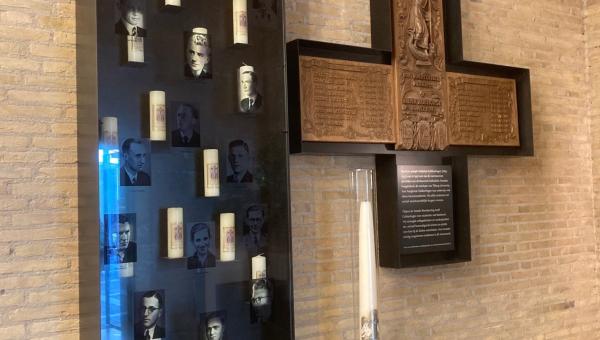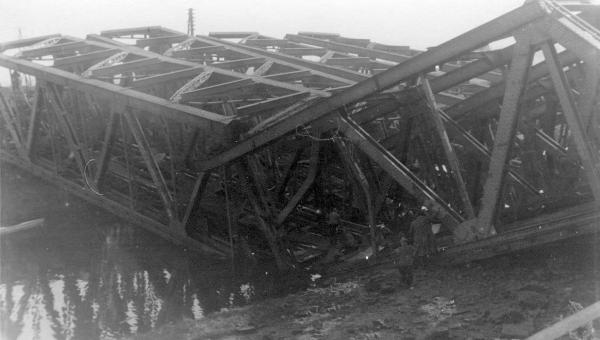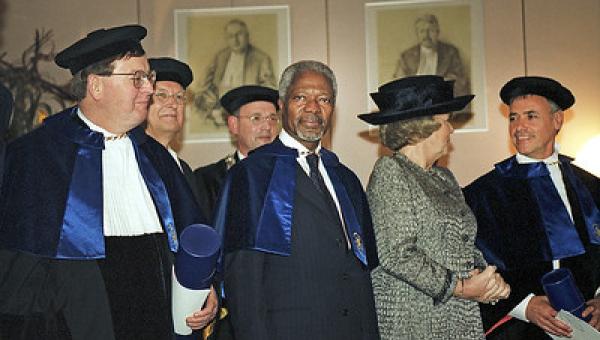War and Reconstruction
In May 1940, World War II breaks out. The Hogeschool remains open until, in 1943, the occupying forces demand a declaration of loyalty from every student. Hardly anyone signs it. Lecturers and students try to give each other moral support and concrete help. A war memorial commemorates the fact that 22 Tilburg students lost their lives, during bombings, resistance activities, in concentration camps, and as a result of forced labor, accident, or illness.
In 1947, the first thesis in the English language was published and the Hogeschool awarded its first honorary doctorate. Research, according to the government’s vision, was a core university task, in addition to education and academic training ("the spiritual and moral formation and social responsibility of students"). In conjunction, the importance of the social sciences grew. It was that context, historian Johan de Vries wrote in volume II of the university's historiography, "that determines the ups and downs of Tilburg Hogeschool in the second period of its existence."
More about history and academic heritage
The Tilburg University academic heritage is a very diverse set of archives, visual materials, collections, devices, recorded stories, et cetera that relate to the history of the university.


